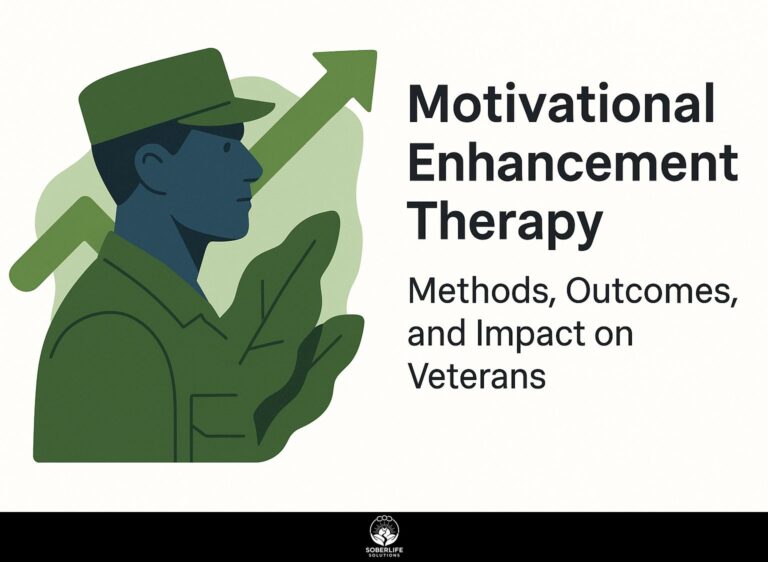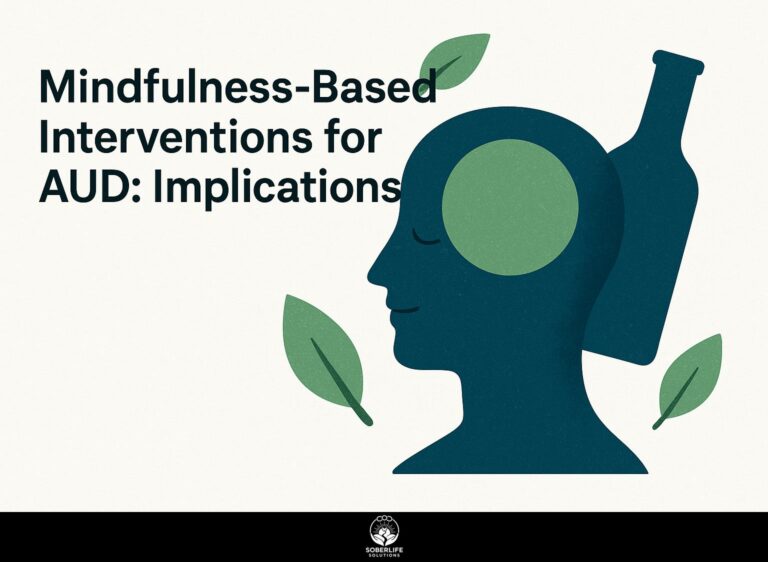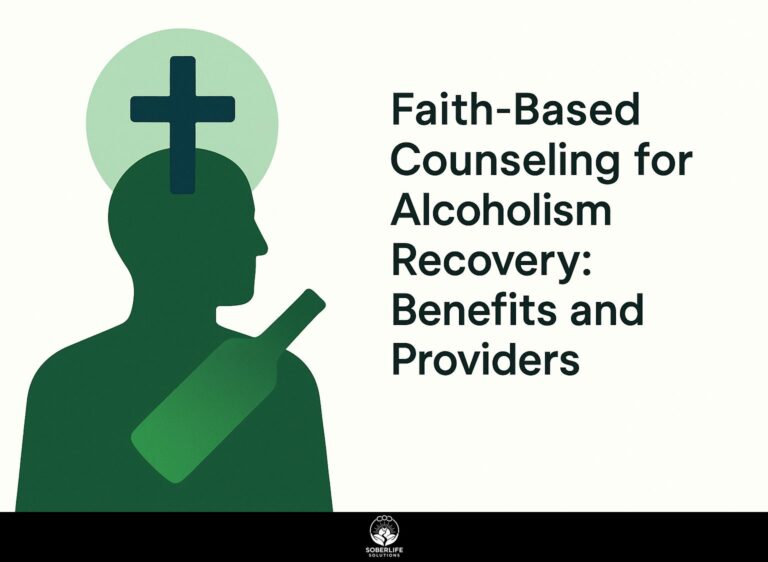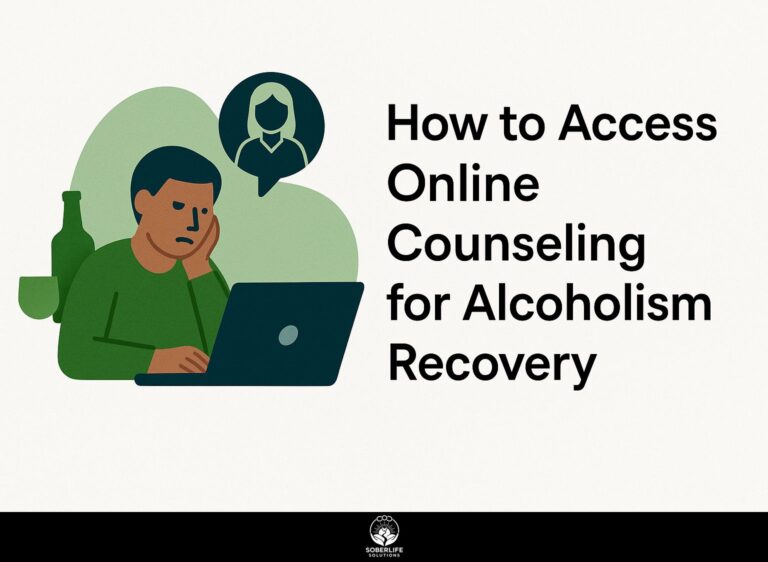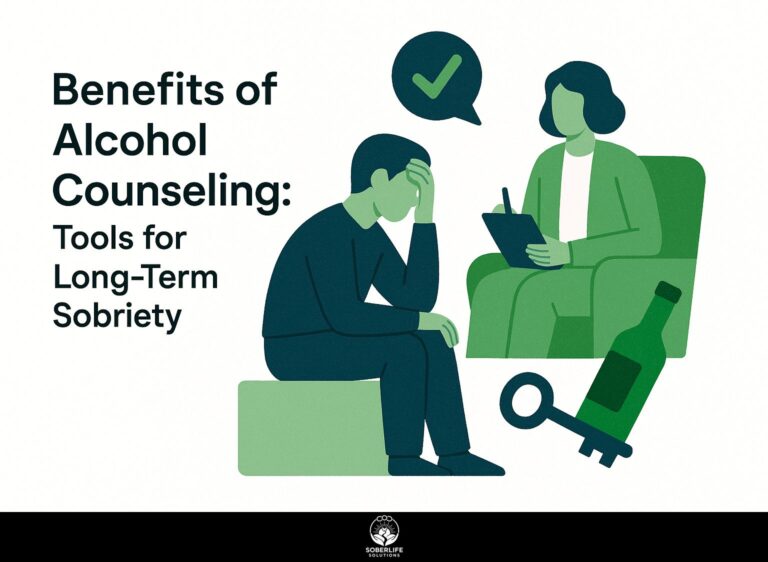Group Counseling for AUD: Dynamics and Success Rates
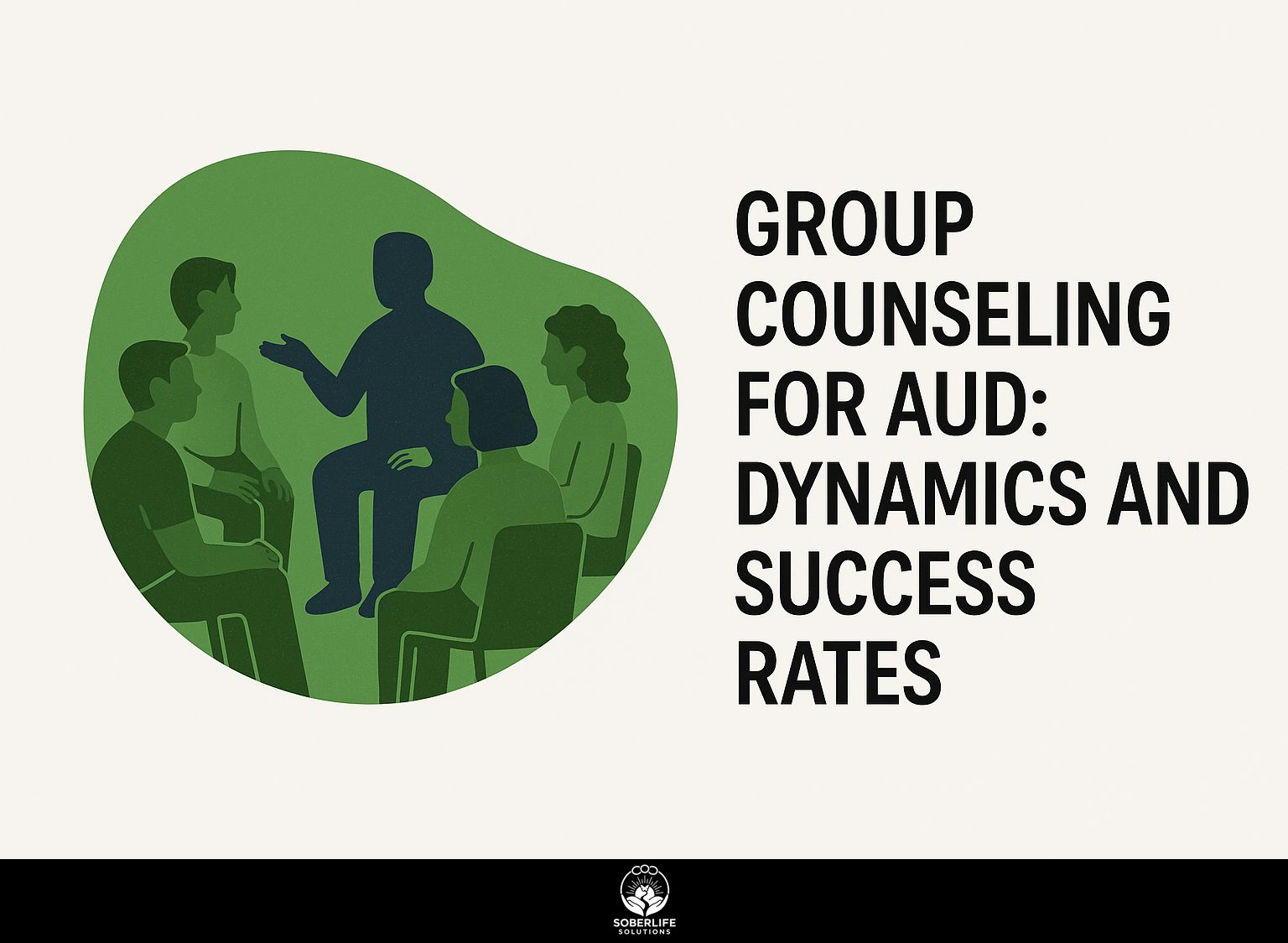
Struggling with alcohol use disorder (AUD) can feel isolating, but group counseling offers a powerful path to recovery. In the United States, treatments based on research, such as group therapy, are effective in treating substance use disorder. Research from NCBI shows that how group counseling works is very important for carrying out treatment and its success rates. This article looks into the details of group therapy, pointing out its benefits, challenges, and the things that affect results for people looking for healing and support.
Key Takeaways:
Definition of AUD
Alcohol Use Disorder (AUD) is characterized by an individual’s inability to control their alcohol consumption, often leading to significant health, social, and economic issues.
According to the National Institute on Alcohol Abuse and Alcoholism, approximately 14.1 million adults in the U.S. suffer from AUD.
To diagnose AUD, healthcare professionals refer to the DSM-5 criteria, which include a range of symptoms such as craving alcohol, increased tolerance, and continued use despite negative consequences. For those seeking a comprehensive understanding of these criteria, RAND provides a detailed diagnostic criteria checklist.
Addressing AUD often involves various treatment options, including counseling, support groups like Alcoholics Anonymous, and medication. It’s crucial to know when to seek professional assistance; as mentioned in our guide on recognizing the right time, early intervention can significantly impact recovery success.
For many people, starting the healing process means taking action and getting help through therapy or rehab programs designed for them.
Importance of Group Counseling
Group counseling is important for people with AUD, creating a space for mutual support that improves recovery rates and personal responsibility.
Joining group counseling can provide many emotional benefits, like sharing experiences and forming connections with others dealing with similar issues. Studies show that those engaged in group sessions exhibit a 30% increase in treatment adherence compared to individual therapy.
Programs such as SMART Recovery and Alcoholics Anonymous provide support groups with organized meetings. Online platforms such as Zoom can facilitate virtual meetings, ensuring accessibility for all participants.
These components, combined with regular attendance, significantly help recovery and encourage continuous commitment, resulting in a more effective path to sobriety. According to research findings published by MDPI, the structured environment of group therapy offers significant emotional and psychological benefits that contribute to long-term recovery.
Dynamics of Group Counseling
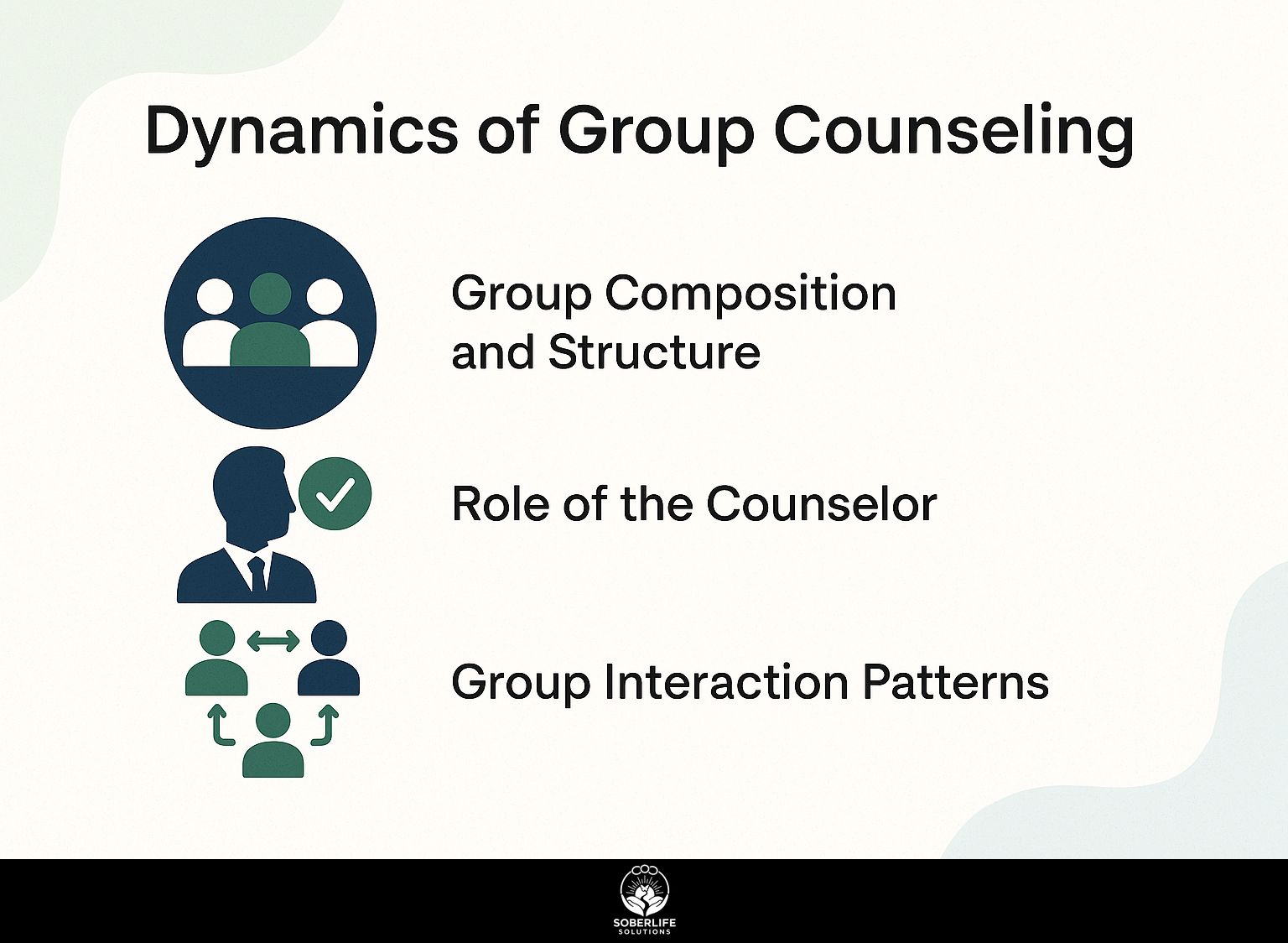
It’s important to know how group counseling works to get the best results for people with Alcohol Use Disorder. Understanding the benefits of peer support groups can significantly enhance the effectiveness of these sessions.
Group Composition and Structure
Effective group counseling needs a well-structured plan that combines various perspectives and maintains order.
To achieve this, consider forming groups of 6-12 members who share similar backgrounds and goals. Each session needs to include certain topics, promote open conversation, and make sure everyone takes part.
For instance, using tools like shared agendas can help keep discussions focused. Taking turns to speak ensures everyone participates and provides an opportunity for quieter members to voice their thoughts.
Creating a helpful environment is important; urge members to honor privacy and create trust to improve participation and results. The importance of these elements in therapy is highlighted by the American Psychological Association, which outlines keys to effective group therapy in their publication.
Role of the Counselor
The counselor is important for guiding group interactions, creating a secure environment for honest communication and successful therapeutic strategies.
To achieve this, the counselor must establish clear ground rules that promote respect and confidentiality among participants.
Utilizing motivational interviewing techniques, they can guide discussions, helping members articulate their thoughts and feelings without judgment.
In addition, the counselor should be prepared to address conflicts that may arise, using active listening to validate emotions while steering the conversation back to constructive dialogue.
By using these methods, the counselor creates a setting that promotes individual development and group recovery.
Group Interaction Patterns
Group interaction patterns significantly impact the therapeutic process, influencing both individual engagement and overall group cohesion.
Good ways to involve people can create a helpful atmosphere.
For instance, structured sharing rounds encourage each member to voice personal experiences, promoting empathetic listening. Conflict resolution techniques, such as the ‘I-statements’ approach, help individuals express feelings without sounding accusatory, reducing tension.
Tools like group agreements can set clear expectations, ensuring respect and openness. By using these methods, facilitators can build trust and improve communication, which leads to a stronger group connection and a better therapeutic experience.
Benefits of Group Counseling
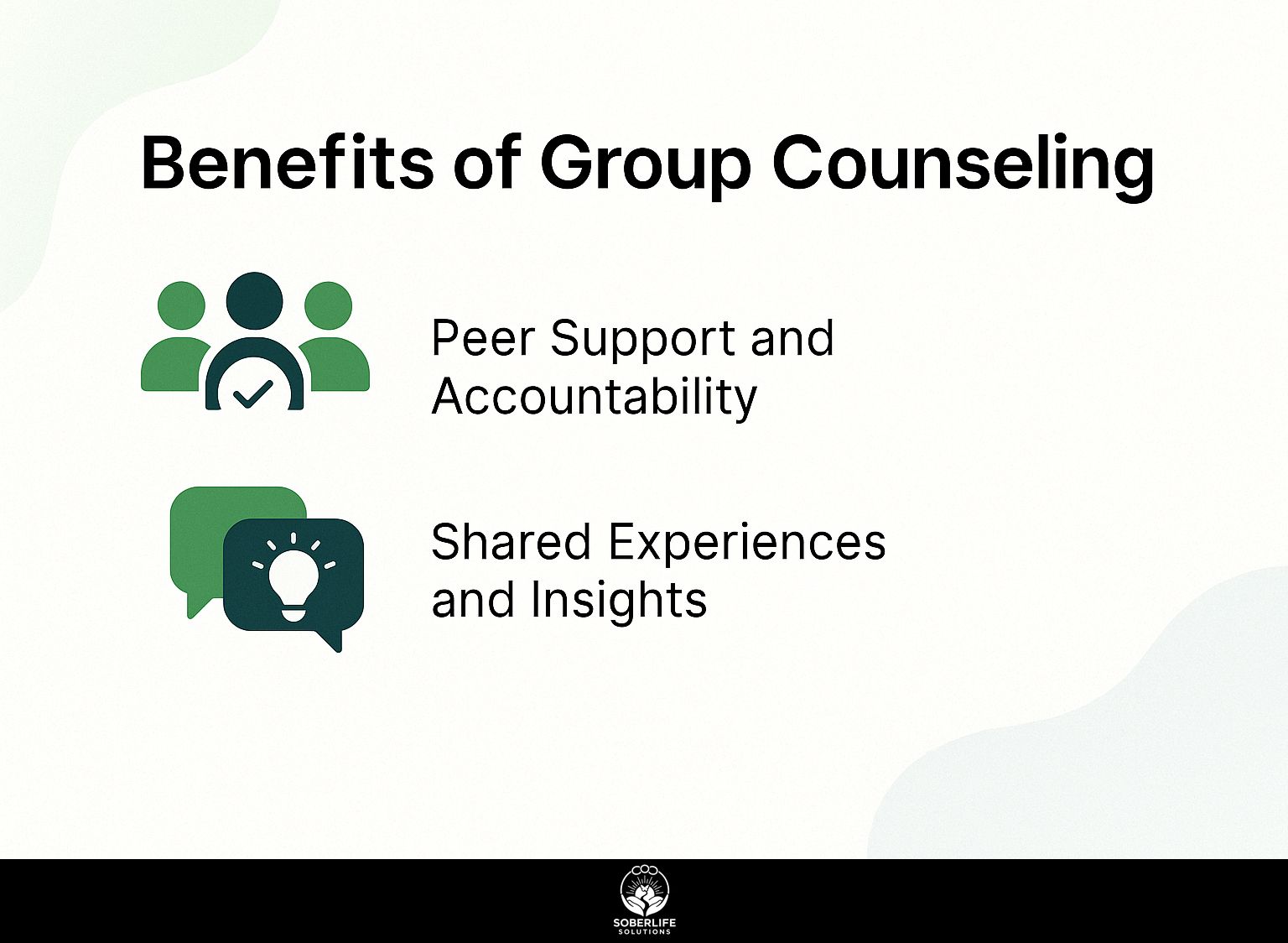
Group counseling provides many benefits, including strong peer support that encourages responsibility and shared learning among participants. If you’re interested, you might appreciate our insights on tailored peer support for young adults, which further highlights the value of these groups.
Peer Support and Accountability
Peer support within group counseling increases accountability, helping individuals with AUD stay committed to their treatment goals.
For example, Alcoholics Anonymous (AA) members often talk about their personal struggles and successes during meetings, building a strong sense of community. This shared experience allows participants to hold each other accountable through mutual check-ins between sessions.
Members are often paired with sponsors-more experienced individuals who provide guidance and support. Using tools such as a mobile app for alerts or a journal to record emotions can help you stay responsible.
Research shows that groups employing these strategies see a significant reduction in relapse rates, reinforcing the value of community in recovery.
Shared Experiences and Insights
Group counseling provides shared experiences that are important for learning, improving personal coping methods, and helping participants deal with their emotions.
Sharing personal stories allows group members to know each other better and feel empathy, making shared experiences more meaningful.
For example, a participant sharing their struggle with anxiety can encourage others to open up about their own challenges, leading to a supportive environment.
By noticing how others handle challenges, people might feel encouraged to try new approaches.
You can use journaling or storytelling to encourage participants to express their emotions. This strengthens relationships and improves emotional strength in the group.
Challenges in Group Counseling

While group counseling for AUD has benefits, it can face challenges that might interrupt the sessions and lead to less participation from those involved. Addressing these hurdles effectively often requires adopting diverse therapeutic techniques. Our elaboration on Cognitive-Behavioral Therapy Techniques for AUD Recovery offers practical strategies to overcome common obstacles and enhance group engagement.
Group Dynamics and Conflicts
Disagreements in group counseling can interfere with therapy, requiring effective action from the counselor.
Counselors can use a variety of methods to deal with these conflicts.
- First, identify specific sources of tension-such as personality clashes or differing goals among members.
- Next, facilitate open discussions to allow individuals to express their feelings constructively.
- Using mediation methods, such as active listening, can help members see different viewpoints.
- Set group rules that promote respect and teamwork, creating a safer space for open communication.
These steps can greatly improve the unity and success of group counseling meetings.
Individual Resistance
Individual reluctance to join group counseling can weaken its effectiveness, so specific methods are needed to promote involvement and dedication.
One effective strategy is employing motivational interviewing techniques, which focus on exploring and resolving ambivalence. By asking open-ended questions, counselors can help participants articulate their concerns and aspirations.
For example, instead of asking, ‘Are you ready to join the group?’ try, ‘What do you think about being part of a group?’ Creating a space where people feel accepted is important.
Creating ground rules that emphasize confidentiality and respect can make individuals feel safer to express their hesitations, thereby increasing the likelihood of engagement.
Success Rates of Group Counseling for AUD
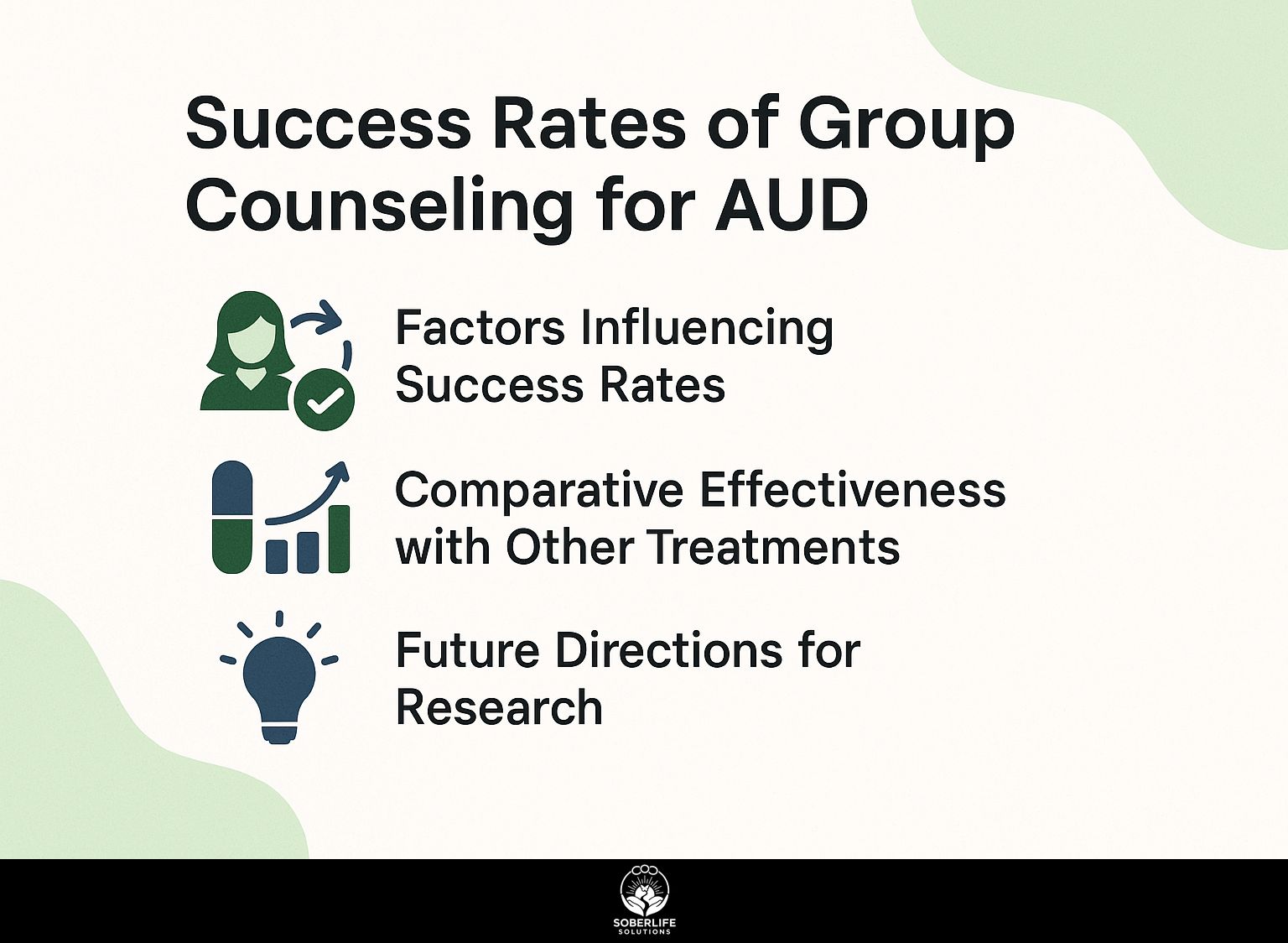
Group counseling success levels differ, influenced by various elements when compared to other treatment methods. For an extensive analysis of alternative approaches, our comprehensive study of Cognitive-Behavioral Therapy techniques for AUD recovery examines key factors influencing outcomes.
Factors Influencing Success Rates
Important elements that affect how well group counseling works for AUD are how well the group gets along, the skill of the counselor, and the dedication of participants to getting better.
When people in a group have strong connections, they are much more likely to stay involved, with studies indicating a 50% higher likelihood of continued participation.
To support this, make a secure space where people feel comfortable sharing their personal stories. Meanwhile, a counselor’s knowledge is important; an experienced therapist can lead conversations and tackle hidden problems, leading to better results.
Participant commitment is vital. Encourage accountability through regular attendance and assignments. Setting clear goals from the start helps focus on improvement and ensures everyone feels part of their development.
Comparative Effectiveness with Other Treatments
When compared to individual therapy, group counseling demonstrates comparable effectiveness for many individuals battling AUD.
A meta-analysis found that group therapy has a success rate of approximately 60%, particularly effective in providing peer support and reducing feelings of isolation.
Individual therapy is effective for about half of the people and usually centers on customized treatment plans.
Intensive outpatient programs, providing structured support and therapy sessions three to five times a week, can achieve success rates of about 70%, making them an effective option for people needing more intensive care.
Choosing the best method relies on personal situations, likes, and how serious the condition is.
Future Directions for Research
The goal of research should be to improve group counseling methods and measure their effectiveness with various people and in different environments.
One promising avenue is to integrate technology into group therapy, utilizing tools like telehealth platforms for remote sessions and apps for tracking participant progress.
For example, using platforms such as Zoom allows for accessibility among various demographics. Looking at the impact of adding mindfulness exercises in group environments can improve how involved participants are and their results.
Researchers could also look into how adjusting these strategies to fit cultural differences makes them work better and align with various community needs. This approach is designed to offer a counseling experience that feels friendly and beneficial for everyone.
Frequently Asked Questions
What is group counseling for AUD?
Group counseling for AUD (alcohol use disorder) is a form of therapy that involves a group of individuals with AUD coming together to discuss their struggles, emotions, and experiences with alcohol. It is led by a trained therapist and focuses on creating a supportive and non-judgmental environment for recovery.
How does group counseling for AUD work?
In group counseling for AUD, members are encouraged to share their thoughts, feelings, and experiences related to alcohol use. The therapist may lead discussions, provide resources and tools for coping with triggers, and facilitate group activities to promote a sense of community and support.
What are the benefits of group counseling for AUD?
Group counseling for AUD offers many benefits such as creating a community, offering support, reducing feelings of isolation and shame, and promoting accountability and motivation for recovery. People can gather knowledge from others’ experiences and see things from different viewpoints.
What are some typical patterns in group counseling for Alcohol Use Disorder (AUD)?
In group counseling for AUD, members might experience different interactions like showing empathy, building trust, resolving conflicts, and enhancing their communication skills. The therapist might discuss power relations, how well the group works together, and personal differences to encourage a positive and secure group environment.
What are the success rates of group counseling for AUD?
How well group counseling works for AUD can differ based on how committed and involved a person is, as well as the interactions within the group and the therapist’s method. Research indicates that group counseling can work well, with studies showing a success rate between 60% and 80%.
Is group counseling for AUD right for me?
Group counseling for AUD can help people find support and stay accountable during their recovery process. Think about how the group works and how successful they are, along with how comfortable you feel being part of the group. It is also recommended to speak with a therapist to determine if group counseling is the best form of treatment for your specific needs.

